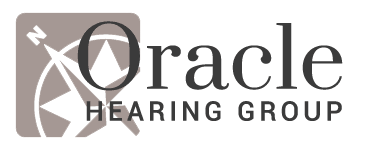Are you under the mistaken impression that everyone can afford hearing aids, they just choose not to buy them?
The following was taken directly from an online blog.
“Well I don’t have good news to report, …30 mins ago or so I found out we’d been declined for the loan for the hearing aids. I am feel sick to my stomach, my head hurts and I can’t keep the tears back. I can feel my blood pressure going up as I type this, I have been so stressed about this whole hearing loss thing. So my journey to getting funding continues.”
There has been a multitude of changes in the hearing healthcare industry over the past 15 years, but none more dramatic than the cost of the products dispensed. Amplification technology is indeed phenomenal – but very expensive. Some patients require a payment plan in order to make their hearing aid purchase affordable.
It’s important for you, as a healthcare professional to understand and routinely present payment options to your patients. Almost all other allied health professions have embraced financing alternatives. Dentists, orthodontists, ophthalmologists, plastic surgeons and other assorted other healthcare professionals have realized the cost of their products and services has risen dramatically, and payment options are the only way many of their patients can afford their services.
By promoting affordable, low monthly payments, you open the door for many new patients who may not be able to pay ”out of pocket” for amplification. More importantly, financial shortcomings are embarrassing. If you don’t offer a solution, the patient/consumer may not even address the issue with you.
Many people will likely desire and choose higher quality instruments and products if a financial solution is available to them. Financing may be the key to making your patients comfortable with what you have recommended for them. By offering payment terms to patients, you will see greater acceptance of your hearing healthcare solutions to their hearing problems.
There have been many studies and discussions regarding the emerging ”baby boomers” entering the hearing healthcare market. Here are the facts:
- 78 million people n America are moving into the segment of midlife-to-older.
- The active boomer lifestyle may not allow for hearing problems to go un-addressed.
- Nearly all boomers are still working, and most say they intend to keep doing so past the traditional age of retirement.
Aside from the tremendous growth in the size of this group, these consumers differ substantially in their past experience and in their expectations from your current customer base, in that:
- Most of the consumers within this emerging demographic will be more familiar with credit than their parents.
- Most of the consumers will have more income than their parents did.
- On average, they will have purchased at least 3 computers during their lifetime.
- Most will have owned a cell phone.
- Many will want and need patient financing.
Knowing your patient’s financial situation is not part of your professional responsibility. However, offering your patient options for the purchase of hearing instruments is a professional responsibility and allows your patient to make an informed decision regarding the level of care they can afford to purchase
By presenting payment options you maximize your efforts to provide your patient the best amplification for their situation.
